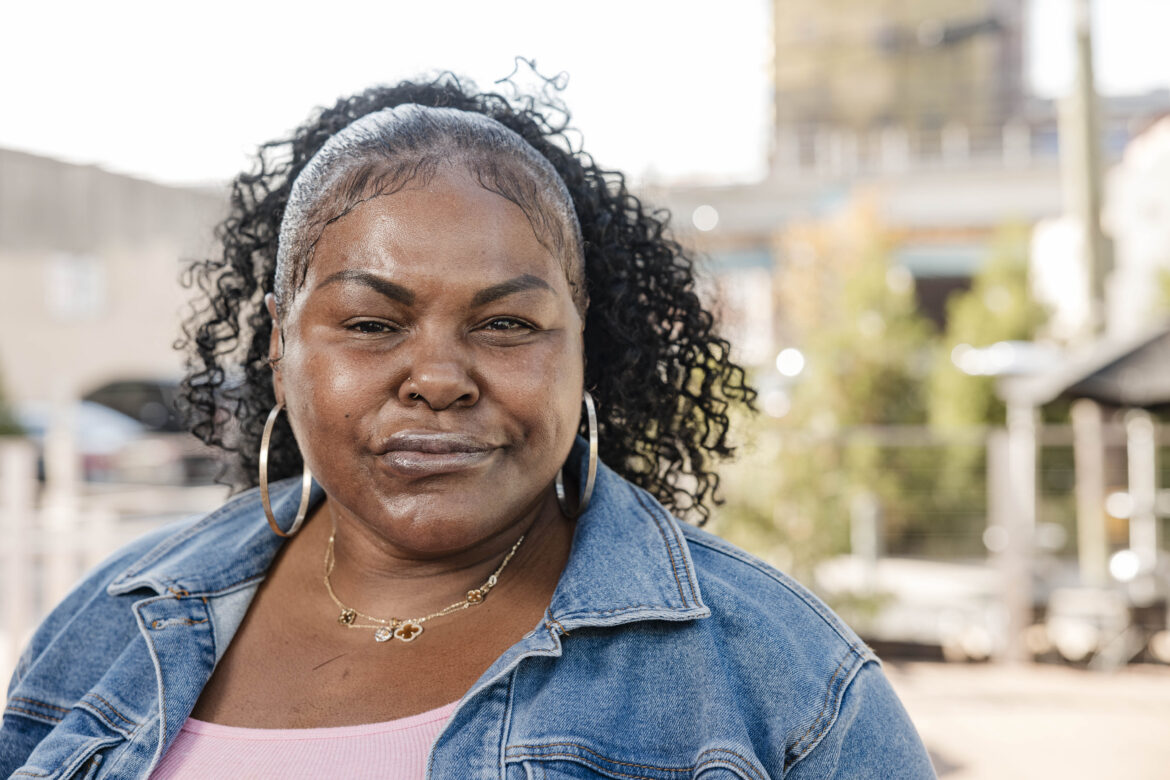A conversation with Eunice Allen: Survivor, advocate, award winner, and so much more.
Eunice Allen is a founding member of LSH’s Survivor’s Network, a recent fellow in our Bilingual Domestic Violence Program (BDVP), and our 2017 Resilience Award recipient. Last month, we sat down with Eunice to learn more about her experience as a domestic violence (DV) advocate along with her hopes for the future.

“A lot of people are afraid and they don’t know who they can trust.
I want people to know that we’re here. You can trust us.
I want to change lives—to save lives.”
How did you first learn about LSH?
I came to LSH in 2016 after a doctor’s appointment at the Children’s Hospital (CHOP). During the appointment, one of my children disclosed to their pediatrician what was going on at home. The doctor pulled me aside and asked me how I was doing; she immediately made me feel really comfortable and I decided to open up about everything that was going on—about the abuse.
That same day, the doctor connected me to one of LSH’s Medical Advocates at CHOP. Soon after, I started counseling at LSH’s main office in Fishtown. My counselor’s name was Sydney…Sydney saved my life.
You’re one of the founding members of LSH’s Survivor’s Network. Tell me about the early days of the Network.
There were three of us in the beginning—me, Ivy, and Kalena. One day, we were talking to some of the BDVP staff and we were like, “Listen, we need to build something to support each other. A safe space where we can share our stories and encourage other people. We need to let people know that there’s life after abuse.”
Five years later, our Network is 14 members strong and before we’re done, it’s going to be even bigger. There are just too many people hurting in silence. We need to keep getting out there—sharing our stories and dispelling myths about DV. A lot of people still think DV is just physical, but it’s so much more than that.
As a former client turned Counseling Fellow, what’s it like to be on the other side of the conversation?
I started my fellowship* with LSH in June and I just love it. It’s a brand new program and I’m the first survivor to become a fellow.
At first, I mostly shadowed staff, learning about all the different programs, processes, and resources. Now, I have six clients of my own. I think it’s really powerful for clients to see, like—wow, she experienced the same thing I’m going through and now she’s here doing this work. And honestly, it doesn’t even feel like work because I love it so much. It feels really natural, that’s how I know it’s what I’m supposed to be doing.
What motivates you to share your story?
Back in 2013, three years before that CHOP appointment that changed everything, I went to the Emergency Department (ED) at another hospital with an abuse-related injury. Back then, people didn’t really acknowledge DV. There were no posters, no flyers, no one asking if you were safe.
That night at the ED, I told the doctor that my partner had busted my lip. A few hours later, I remember looking at my discharge paperwork and seeing the words, “alleged assault by partner.” And I was like, “Wow, the doctor didn’t believe me.” It really hurt.
Years later, it was that experience in the ED that fired me up and inspired me to share my story. You never know what people are going through. A lot of people are afraid and they don’t know who they can trust. I want people to know that we’re here. You can trust us. I want to change lives—to save lives.
If you had to describe the Survivor’s Network in just one word, what would you say?
That’s hard. I keep coming up with more than one word! You know what? Right now, I would say: sisterhood. We’re open to people of all different gender identities, so that word might change in the future, but for now: sisterhood. We’re like family.
*Exciting update! Earlier this month, Eunice completed her fellowship and accepted a full-time position as a DV Counselor and Advocate at LSH.
To learn more about the Survivor’s Network, click here. To hear more from Eunice and learn about a recent video collaboration with CHOP, “Addressing Domestic Violence in Healthcare Settings” click here.
